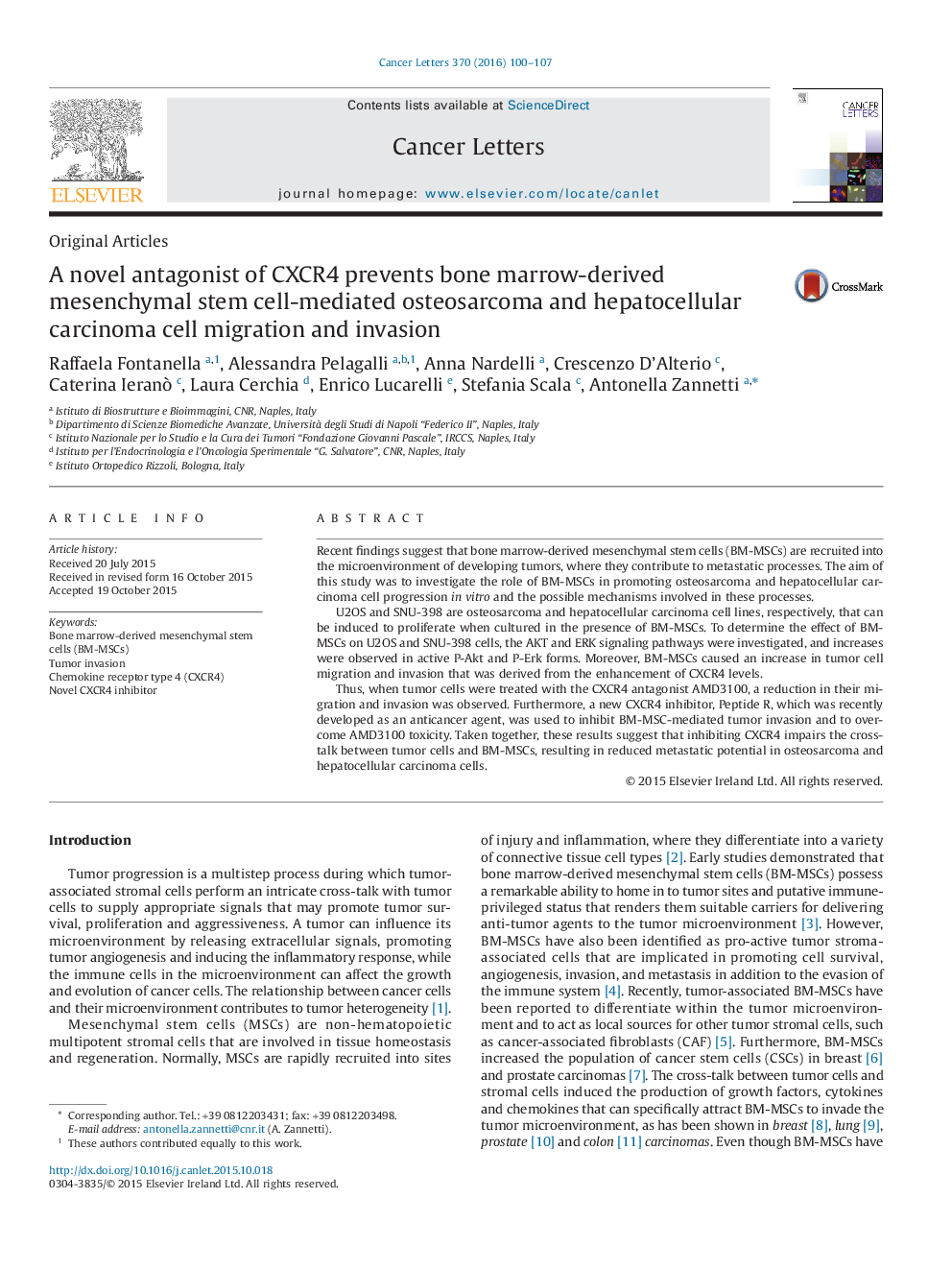| Article ID | Journal | Published Year | Pages | File Type |
|---|---|---|---|---|
| 2116134 | Cancer Letters | 2016 | 8 Pages |
•BM-MCSs increase proliferation, migration and invasion in osteosarcoma (OS) and hepatocellular carcinoma (HCC) cell lines.•BM-MCSs activate the AKT and ERK pathways in OS and HCC cells.•CXCR4 plays a key role in the cross-talk between BM-MCSs and tumor cells.•A novel CXCR4 antagonist prevents BM-MSC-mediated OS and HCC progression.
Recent findings suggest that bone marrow-derived mesenchymal stem cells (BM-MSCs) are recruited into the microenvironment of developing tumors, where they contribute to metastatic processes. The aim of this study was to investigate the role of BM-MSCs in promoting osteosarcoma and hepatocellular carcinoma cell progression in vitro and the possible mechanisms involved in these processes.U2OS and SNU-398 are osteosarcoma and hepatocellular carcinoma cell lines, respectively, that can be induced to proliferate when cultured in the presence of BM-MSCs. To determine the effect of BM-MSCs on U2OS and SNU-398 cells, the AKT and ERK signaling pathways were investigated, and increases were observed in active P-Akt and P-Erk forms. Moreover, BM-MSCs caused an increase in tumor cell migration and invasion that was derived from the enhancement of CXCR4 levels.Thus, when tumor cells were treated with the CXCR4 antagonist AMD3100, a reduction in their migration and invasion was observed. Furthermore, a new CXCR4 inhibitor, Peptide R, which was recently developed as an anticancer agent, was used to inhibit BM-MSC-mediated tumor invasion and to overcome AMD3100 toxicity. Taken together, these results suggest that inhibiting CXCR4 impairs the cross-talk between tumor cells and BM-MSCs, resulting in reduced metastatic potential in osteosarcoma and hepatocellular carcinoma cells.
